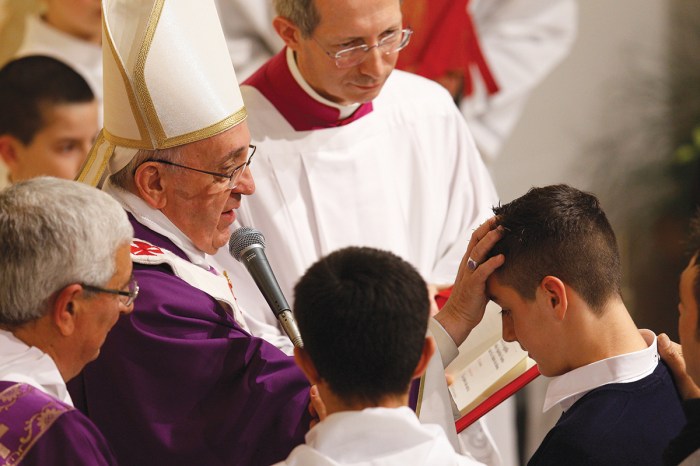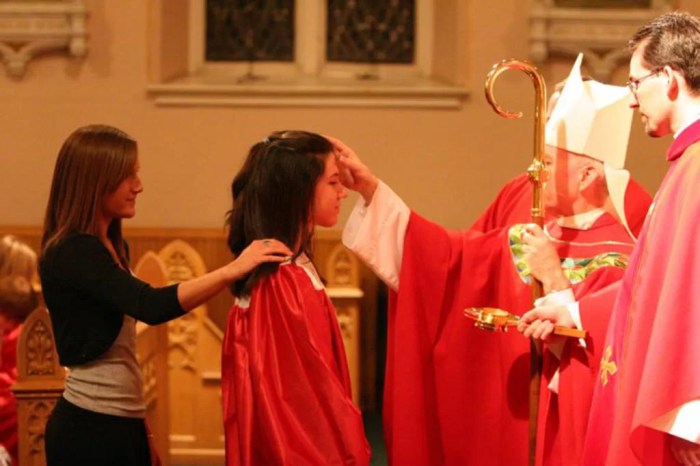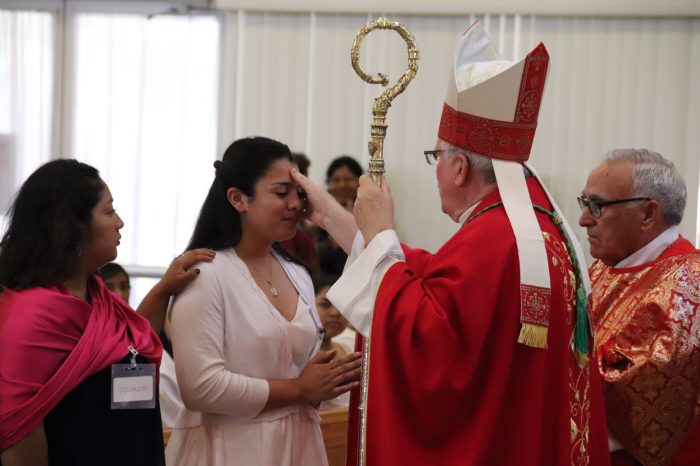Rite of confirmation roman catholic – The Rite of Confirmation in the Roman Catholic Church is a profound sacrament that marks a pivotal moment in the spiritual journey of believers. It is a time of grace and empowerment, where individuals deepen their relationship with Christ and embrace their role as witnesses to his Gospel.
This comprehensive guide delves into the historical, theological, and practical aspects of the Rite of Confirmation. We will explore its origins, significance, and the transformative effects it has on the lives of those who receive it.
Historical Overview of the Rite of Confirmation in the Roman Catholic Church: Rite Of Confirmation Roman Catholic

The Rite of Confirmation traces its origins to the early Church, where it was initially administered alongside Baptism as a single rite of initiation. Over time, the two sacraments became distinct, with Confirmation emerging as a separate sacrament focused on the strengthening of faith and the bestowal of the Holy Spirit’s gifts.
The theological significance of Confirmation has evolved over the centuries, with the Council of Trent (1545-1563) defining it as a sacrament that “confirms and strengthens the grace of Baptism.” This sacrament is seen as a deepening of baptismal grace, enabling the recipient to become a mature and active member of the Church.
The Liturgical Structure and Elements of the Rite
The Rite of Confirmation typically consists of the following key steps and elements:
- Laying on of Hands: The bishop extends his hands over the confirmands, invoking the Holy Spirit upon them.
- Anointing with Chrism: The bishop anoints the forehead of each confirmand with chrism, a consecrated oil, symbolizing the sealing of the Holy Spirit.
- Profession of Faith: The confirmands recite the Creed, affirming their belief in the fundamental tenets of the Catholic faith.
Each element holds symbolic and theological significance, representing the conferral of the Holy Spirit’s gifts, the strengthening of faith, and the incorporation of the confirmands into the wider Christian community.
The Role of the Bishop and Sponsors in Confirmation
The bishop, as the chief minister of Confirmation, represents the apostolic succession and the authority of the Church. Through the laying on of hands, the bishop invokes the Holy Spirit upon the confirmands, confirming their baptismal grace.
Sponsors play a crucial role in supporting and guiding the confirmands. They assist in preparing the candidates for Confirmation, providing spiritual guidance and witnessing their profession of faith.
Preparation and Eligibility for Confirmation, Rite of confirmation roman catholic
Preparation for Confirmation involves a process of discernment and catechesis. Candidates are expected to have a basic understanding of the Catholic faith, a desire to deepen their commitment to Christ, and a willingness to live out their baptismal vows.
The age of eligibility for Confirmation varies depending on the local Church, but it is typically administered to individuals who have reached the age of reason and are capable of understanding the significance of the sacrament.
The Effects and Grace of Confirmation
Confirmation confers a number of spiritual effects and graces upon the recipient:
- Strengthening of Faith: Confirmation deepens the recipient’s faith, providing them with the grace to live out their Christian calling with courage and conviction.
- Deepening of Discipleship: The sacrament strengthens the recipient’s bond with Christ, empowering them to be active and committed disciples.
- Empowerment for Witness: Confirmation empowers the recipient to witness to their faith, sharing the Gospel message with others and living out the Christian life in the world.
Commonly Asked Questions
What is the age requirement for Confirmation?
The age requirement for Confirmation varies depending on the diocese or region. In general, it is administered to individuals who have reached the age of reason, which is typically around 12-14 years old.
Who is the minister of Confirmation?
The minister of Confirmation is typically the bishop of the diocese or a priest delegated by the bishop. In some cases, the pope may also administer the sacrament.
What are the effects of Confirmation?
Confirmation strengthens the baptismal grace received in infancy. It deepens faith, strengthens discipleship, and empowers individuals to witness to Christ and live out their baptismal calling.


